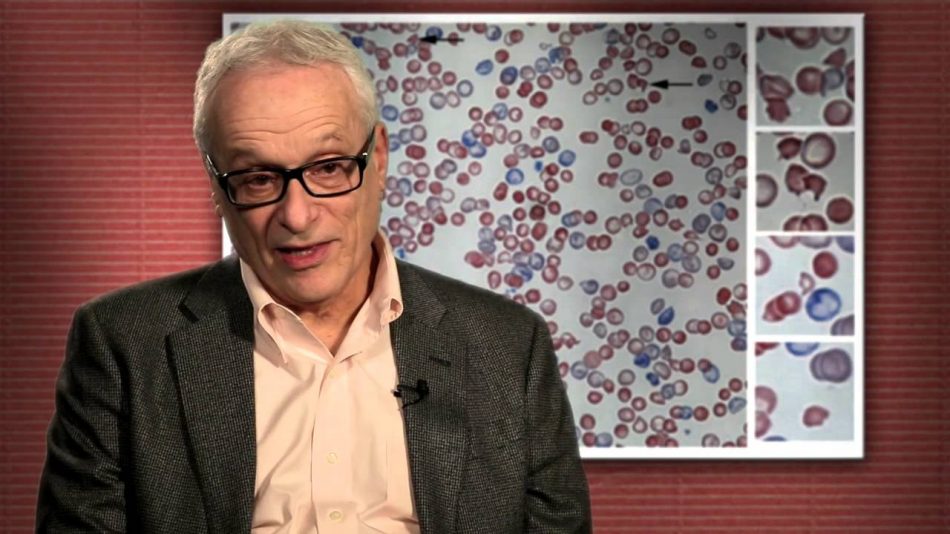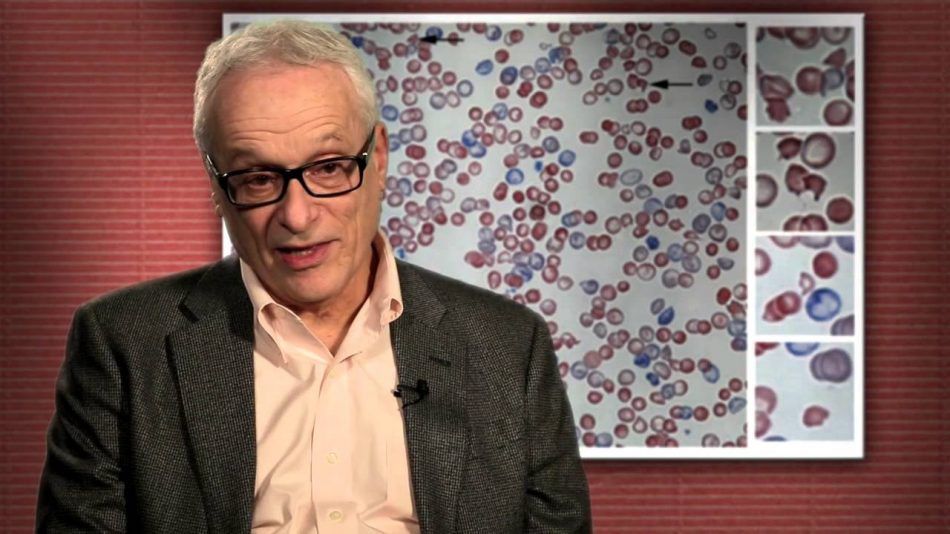
It’s difficult to find medical doctors willing to share scientific information with sangs. Unfortunately, medicine tends to be rough on freethinkers and those who do not have easy to diagnose symptoms.
Part of that is totally rational and based on evidence. But it also means that patients with rarer issues can spend years trying to get diagnosis and treatment. As a sang in an allied medical field, I see both the scientific side of why blood ingestion should not be medically necessary and also have felt just how sick I get if I do not drink blood.
In my experience, most medical doctors, especially hematologists, are not willing to answer questions from sangs because they automatically consider our condition to be psychosomatic. Dr. Tomas Ganz is the first doctor I’ve noticed to give respectful and well-thought out opinions on sangs. He delighted me by also being insightful and respectful in response to the following questions from me.
The question about phlebotomy dangers was based on finding out untrained people were using needles to collect large volumes of blood from donors without phlebotomy or blood bank training. The theoretical questions were based on theories on how and why sangs might need or process blood that I or others have voiced in the past.
Raven Orthaevelve: How likely is ingesting blood infected with diseases such as syphilis or HIV to infect a blood drinker? I understand in general the percentage would be higher for someone with mouth ulcers, but is there a way to get a general percentage?
Tomas Ganz: The most relevant and well-documented setting for blood-borne transmission of infections is transmission of disease from patients to health care workers. These events include needlesticks as well as splashes but mostly needlesticks. The risks are listed on the occupational health website https://www.cdc.gov/niosh/stopsticks/bloodborne.html as the chance of becoming infected after an incident involving the patient who has the disease: HIV 0.3%, hepatitis B virus 6-30%, hepatitis C 1.8%. I was not able to find data on other infections but would expect them to be less important. The actual risk to a sanguinarian in real life = the risk of encountering a partner with an infection x the risk of transmission x the number of exposures (the math works only for rare infections, relatively low transmission risks, and low numbers of exposures, otherwise the calculation is slightly more complicated). If a community has a high proportion of infected individuals and a high number of encounters the risk to a participating person will be high, even when the transmission risk appears relatively low. That is what spread the HIV and hepatitis B/C epidemics.
RO: Has any research been done on the nutritional completeness and long term health of cultures who ingest blood such as the Maasai and the Inuit and what effect inclusion of blood has on their diet?
TG: I looked for articles that would address this question but could not find any. The Maasai who drink raw milk or uncooked cow blood are at risk for brucellosis which is a relatively common infection in cattle that don’t receive veterinary care, and this infection can be transmitted to humans.
RO: Several theories have been advanced in the community about the need for blood being a lack of micronutrients or a mild Mitochondrial mutation disease, or simply an atavistic leftover of our more carnivorous ancestors, or an epigenetic reaction to adolescent trauma. If any of these were true, how would we go about testing them?
TG: The only way to address the question would be to study sanguinarians as a community, including detailed interviews and blood sampling, and this has not been done. Such research is very demanding of human and financial resources, so it would take someone with a very strong motivation and access to resources to undertake it.
RO: What harm reduction techniques would you recommend to sanguinarians to avoid potential hazards inherent in the drinking of human and animal blood aside from sterile technique, blood draw training and having donors tested?
TG: In addition to sterile and competent blood drawing and testing of donors, the same additional measures that are used by blood banks could be beneficial. These include making sure that the donor is healthy on the day of donation, and asking questions about other exposures, lifestyle and travel (for details the AABB website is helpfulhttp://www.aabb.org/advocacy/regulatorygovernment/donoreligibility/Pages/default.aspx ).
RO: Also any safety recommendations for those who utilize frozen and thawed cows blood?
TG: Exposure risk from blood of commercially-raised cows that receive veterinary care is low and comparable to eating raw or rare cow meat, which is widely consumed.
RO: Can you elborate on the safety and or dangers of venipuncture without phlebotomy training and if drawing more than a 100 ml of blood?
TG: Even after a well performed professional phlebotomy, fainting spells and lightheadedness are common with blood volumes of several hundred ml. These risks would be greater if there is additional blood loss from the phlebotomy site or bleeding into the surrounding tissue, which can happen with phlebotomy, especially when the phlebotomist is inexperienced or poorly trained. Other risks could include damage to an artery or nerve nearby, or infections from nonsterile technique.
Notes
- probed him for further info: Questions forwarded by Erin Chapman to Ganz August 28, 2018. Answers received August 28, 2018.
- Dr. Tomas Ganz is the first doctor [. . .] to give respectful and well-thought out opinions on sangs: An allusion to the following articles and interviews by Erin Chapman: “A Drink of Blood a Day Keeps the Doctor Away: Do Sanguinarians Have Digestive Issues?,” Vamped, February 10, 2016, https://vamped.org/2016/02/10/drink-blood-day-keeps-doctor-away-sanguinarians-digestive-issues/; “Interview with Dr. Tomas Ganz, Regarding His Views on Sanguinarianism,” Feburary 17, 2016, https://vamped.org/2016/02/17/interview-with-dr-tomas-ganz-regarding-his-views-on-sanguinarianism/; and “All the Gory Details: Dr. Tomas Ganz Discusses Blood Drinking,” June 14, 2018, https://vamped.org/2018/06/14/all-the-gory-details-dr-tomas-ganz-discusses-blood-drinking/.
Tomas Ganz is a Distinguished Professor of Medicine and Pathology at the David Geffen School of Medicine, University of California, Los Angeles (UCLA): https://people.healthsciences.ucla.edu/institution/personnel?personnel_id=45783.
